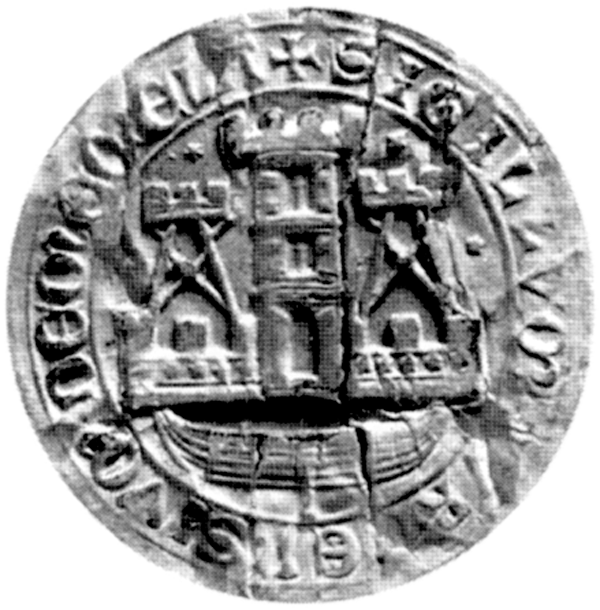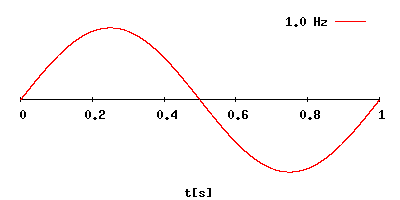|
Raduga (radio)
Raduga is a Russian-language music radio station that is licensed to Klaipėda, Lithuania Lithuania (; lt, Lietuva ), officially the Republic of Lithuania ( lt, Lietuvos Respublika, links=no ), is a country in the Baltic region of Europe. It is one of three Baltic states and lies on the eastern shore of the Baltic Sea. Lithuania .... The station began broadcasting on September 1, 2001. Programs * Nauja Diena * Non Stop * Geriausias Laikas * 100 Ir 8 Malonumai * Užvesk! * Rožinė Spalva * TOP-20 References External links * Radio stations in Lithuania 2001 establishments in Lithuania Russian-language radio stations Mass media in Klaipėda Russian diaspora in Europe {{Lithuania-media-stub ... [...More Info...] [...Related Items...] OR: [Wikipedia] [Google] [Baidu] |
Klaipėda
Klaipėda (; ; german: Memel; pl, Kłajpeda; russian: Клайпеда; sgs, Klaipieda) is a city in Lithuania on the Baltic Sea coast. The capital of the eponymous county, it is the third largest city and the only major seaport in Lithuania. The city has a complex recorded history, partially due to the combined regional importance of the usually ice-free Port of Klaipėda at the mouth of the river . Located in the region of Lithuania Minor, at various times, it was a part of the Polish–Lithuanian Commonwealth, Prussia and Germany until the 1919 Treaty of Versailles. As a result of the 1923 Klaipėda Revolt it was annexed by Lithuania and has remained with Lithuania to this day, except between 1939 and 1945 when it was occupied by Germany following the 1939 German ultimatum to Lithuania. The population has migrated from the city to its suburbs and hinterland. The number of inhabitants of Klaipėda city shrank from 202,929 in 1989 to 162,360 in 2011, but the urban zone ... [...More Info...] [...Related Items...] OR: [Wikipedia] [Google] [Baidu] |
Megahertz
The hertz (symbol: Hz) is the unit of frequency in the International System of Units (SI), equivalent to one event (or Cycle per second, cycle) per second. The hertz is an SI derived unit whose expression in terms of SI base units is s−1, meaning that one hertz is the reciprocal of one second. It is named after Heinrich Hertz, Heinrich Rudolf Hertz (1857–1894), the first person to provide conclusive proof of the existence of electromagnetic waves. Hertz are commonly expressed in metric prefix, multiples: kilohertz (kHz), megahertz (MHz), gigahertz (GHz), terahertz (THz). Some of the unit's most common uses are in the description of periodic waveforms and musical tones, particularly those used in radio- and audio-related applications. It is also used to describe the clock speeds at which computers and other electronics are driven. The units are sometimes also used as a representation of the photon energy, energy of a photon, via the Planck relation ''E'' = ''hν'', ... [...More Info...] [...Related Items...] OR: [Wikipedia] [Google] [Baidu] |
Music Radio
Music radio is a radio format in which music is the main broadcast content. After television replaced old time radio's dramatic content, music formats became dominant in many countries. Radio drama and comedy continue, often on public radio. Music drives radio technology, including wide-band FM, modern digital radio systems such as Digital Radio Mondiale, and even the rise of internet radio and music streaming services (such as Pandora and Spotify). When radio was the main form of entertainment, regular programming, mostly stories and variety shows, was the norm. If there was music, it was normally a live concert or part of a variety show. Backstage sound engineers who jockeyed discs (records) from one turntable to another to keep up with the live programming were often called disc jockeys. With the mass production and popularity of records in the mid 1940s, as well as the birth of TV, it was discovered that a show was needed to simply play records and hire a disc jockey to ... [...More Info...] [...Related Items...] OR: [Wikipedia] [Google] [Baidu] |
Music Radio
Music radio is a radio format in which music is the main broadcast content. After television replaced old time radio's dramatic content, music formats became dominant in many countries. Radio drama and comedy continue, often on public radio. Music drives radio technology, including wide-band FM, modern digital radio systems such as Digital Radio Mondiale, and even the rise of internet radio and music streaming services (such as Pandora and Spotify). When radio was the main form of entertainment, regular programming, mostly stories and variety shows, was the norm. If there was music, it was normally a live concert or part of a variety show. Backstage sound engineers who jockeyed discs (records) from one turntable to another to keep up with the live programming were often called disc jockeys. With the mass production and popularity of records in the mid 1940s, as well as the birth of TV, it was discovered that a show was needed to simply play records and hire a disc jockey to ... [...More Info...] [...Related Items...] OR: [Wikipedia] [Google] [Baidu] |
City Of License
In American, Canadian, and Mexican broadcasting, a city of license or community of license is the community that a radio station or television station is officially licensed to serve by that country's broadcast regulator. In North American broadcast law, the concept of ''community of license'' dates to the early days of AM radio broadcasting. The requirement that a broadcasting station operate a ''main studio'' within a prescribed distance of the community which the station is licensed to serve appears in United States federal law, U.S. law as early as 1939. Various specific obligations have been applied to broadcasters by governments to fulfill public policy objectives of broadcast localism (politics), localism, both in radio and later also in television, based on the legislative presumption that a broadcaster fills a similar role to that held by community newspaper publishers. United States In the United States, the Communications Act of 1934 requires that "the Commission s ... [...More Info...] [...Related Items...] OR: [Wikipedia] [Google] [Baidu] |
Lithuania
Lithuania (; lt, Lietuva ), officially the Republic of Lithuania ( lt, Lietuvos Respublika, links=no ), is a country in the Baltic region of Europe. It is one of three Baltic states and lies on the eastern shore of the Baltic Sea. Lithuania shares land borders with Latvia to the north, Belarus to the east and south, Poland to the south, and Russia to the southwest. It has a Maritime boundary, maritime border with Sweden to the west on the Baltic Sea. Lithuania covers an area of , with a population of 2.8 million. Its capital and largest city is Vilnius; other major cities are Kaunas and Klaipėda. Lithuanians belong to the ethno-linguistic group of the Balts and speak Lithuanian language, Lithuanian, one of only a few living Baltic languages. For millennia the southeastern shores of the Baltic Sea were inhabited by various Balts, Baltic tribes. In the 1230s, Lithuanian lands were united by Mindaugas, Monarchy of Lithuania, becoming king and founding the Kingdom of Lithuania ... [...More Info...] [...Related Items...] OR: [Wikipedia] [Google] [Baidu] |
Radio Stations In Lithuania
Radio is the technology of signaling and communicating using radio waves. Radio waves are electromagnetic waves of frequency between 30 hertz (Hz) and 300 gigahertz (GHz). They are generated by an electronic device called a transmitter connected to an antenna which radiates the waves, and received by another antenna connected to a radio receiver. Radio is very widely used in modern technology, in radio communication, radar, radio navigation, remote control, remote sensing, and other applications. In radio communication, used in radio and television broadcasting, cell phones, two-way radios, wireless networking, and satellite communication, among numerous other uses, radio waves are used to carry information across space from a transmitter to a receiver, by modulating the radio signal (impressing an information signal on the radio wave by varying some aspect of the wave) in the transmitter. In radar, used to locate and track objects like aircraft, ships, spacecraf ... [...More Info...] [...Related Items...] OR: [Wikipedia] [Google] [Baidu] |
2001 Establishments In Lithuania
1 (one, unit, unity) is a number representing a single or the only entity. 1 is also a numerical digit and represents a single unit of counting or measurement. For example, a line segment of ''unit length'' is a line segment of length 1. In conventions of sign where zero is considered neither positive nor negative, 1 is the first and smallest positive integer. It is also sometimes considered the first of the infinite sequence of natural numbers, followed by 2, although by other definitions 1 is the second natural number, following 0. The fundamental mathematical property of 1 is to be a multiplicative identity, meaning that any number multiplied by 1 equals the same number. Most if not all properties of 1 can be deduced from this. In advanced mathematics, a multiplicative identity is often denoted 1, even if it is not a number. 1 is by convention not considered a prime number; this was not universally accepted until the mid-20th century. Additionally, 1 ... [...More Info...] [...Related Items...] OR: [Wikipedia] [Google] [Baidu] |
Russian-language Radio Stations
Russian (russian: русский язык, russkij jazyk, link=no, ) is an East Slavic language mainly spoken in Russia. It is the native language of the Russians, and belongs to the Indo-European language family. It is one of four living East Slavic languages, and is also a part of the larger Balto-Slavic languages. Besides Russia itself, Russian is an official language in Belarus, Kazakhstan, and Kyrgyzstan, and is used widely as a lingua franca throughout Ukraine, the Caucasus, Central Asia, and to some extent in the Baltic states. It was the ''de facto'' language of the former Soviet Union, Constitution and Fundamental Law of the Union of Soviet Socialist Republics, 1977: Section II, Chapter 6, Article 36 and continues to be used in public life with varying proficiency in all of the post-Soviet states. Russian has over 258 million total speakers worldwide. It is the most spoken Slavic language, and the most spoken native language in Europe, as well as the most geographica ... [...More Info...] [...Related Items...] OR: [Wikipedia] [Google] [Baidu] |
Mass Media In Klaipėda
Mass is an intrinsic property of a body. It was traditionally believed to be related to the quantity of matter in a physical body, until the discovery of the atom and particle physics. It was found that different atoms and different elementary particles, theoretically with the same amount of matter, have nonetheless different masses. Mass in modern physics has multiple definitions which are conceptually distinct, but physically equivalent. Mass can be experimentally defined as a measure of the body's inertia, meaning the resistance to acceleration (change of velocity) when a net force is applied. The object's mass also determines the strength of its gravitational attraction to other bodies. The SI base unit of mass is the kilogram (kg). In physics, mass is not the same as weight, even though mass is often determined by measuring the object's weight using a spring scale, rather than balance scale comparing it directly with known masses. An object on the Moon would weigh less t ... [...More Info...] [...Related Items...] OR: [Wikipedia] [Google] [Baidu] |



